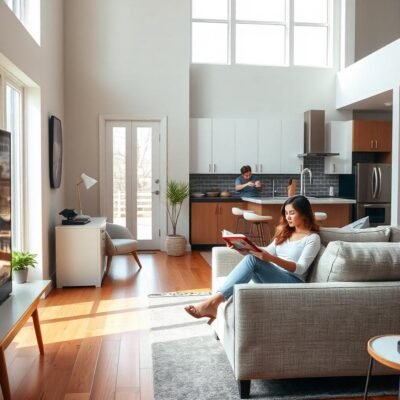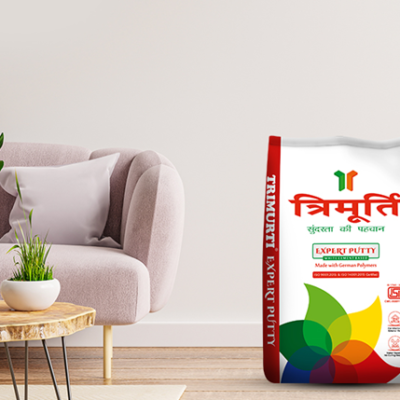Organising your house can be very difficult at times, and it’s even harder if you don’t have much money to spend on new products or to pay someone else to do it for you. Here are 5 simple tips from someone who has organised her house on a budget that I hope will help you get started on your own
house-organising project.https://images.app.goo.gl/1SdaGd1ULz1CmqbUA
HOW TO START
Starting is always tough. That’s why we recommend starting slowly by just tackling one area of your house and seeing how that goes. There’s no need to go overboard at first; simply pick an area in your house that you use every day and start organising it bit by bit. It doesn’t have to be anything fancy—it could be as simple as moving clutter around or getting rid of things you don’t use anymore. But even if you don’t make sweeping changes, thinking about your home in terms of what works for you (instead of what works for your neighbours) will help ensure that everything is put to good use—not just sitting there collecting dust. Start small. We know you want to fix everything all at once, but resist! Taking on too much can be overwhelming and cause you to give up before you’ve even started. Start with something manageable like throwing out old magazines or cleaning out your drawers—and remember: organisation is a process, not an event.
1) THE BASICS
Cleaning and organising is one of those things people like to put off. It takes effort, and you have to be ruthless – getting rid of stuff can be hard. I know because I’ve tried and failed many times in my life. With housework, there are two good approaches that really help you get on top of things: doing a little each day or tackling a big project all at once (I always prefer option two). As long as you’re consistent with your daily or weekly habits, it’s not hard to maintain things after that. Just do some basic cleaning before going to bed each night (or setting aside half an hour for bigger jobs) and plan time into your weekend for larger tasks. You’ll need: 1. A bin bag and gloves 2. Old newspapers 3. A broom
1. Label Cupboards After clearing everything out of every cupboard, try out different places for everything according to its size, shape and weight. Keep similar items together so they’re easy to find when you need them. Stick shelf liners over cupboard walls and add magnetic hooks where possible too (this is great if you’ve got kids). Finally, use empty boxes on shelves around your house as temporary storage space until everything finds its home (and then label these boxes accordingly so everyone knows what goes where).
2) YOUR FAVOURITE THINGS
I love getting rid of things. I love re-arranging things. I love putting things away and knowing that they’re safe for another day. But my absolute favourite thing about organising is spending time with my family. When we have an open house, there’s always something fun to do together as a family – sorting out clothes or books; decorating each other with stickers and make-up; dancing to music in nothing but our undies; you name it! It’s impossible not to feel closer when you spend hours doing something enjoyable together, so organising might be my favourite way to bond with them all at once.
3) CLEAN OUT YOUR WARDROBE
There’s nothing worse than spending money you don’t have. Unless, of course, it’s spending money you don’t want to spend. Looking at some items in your wardrobe and finding that they no longer fit properly can be painful for many people, but there are ways to avoid extra costs here – for example by cleaning out your wardrobe ahead of time instead of buying a whole new wardrobe when you lose weight or need more clothing. By knowing how to spot great deals online and where to look offline, we can ensure that our wardrobes are always stocked with fabulous and practical attire while saving money wherever possible. One idea is to visit second-hand stores like Goodwill or The Salvation Army. You might find clothes that still have plenty of wear left in them, even if they’re not necessarily
fashionablehttps://images.app.goo.gl/w5xdYY3JFH9CSwzG6 anymore. Plus, used clothes are often much cheaper than their new counterparts. As long as you clean any used clothes before wearing them (and wash them before donating them), you can help save money and reduce waste all at once! For anyone who loves fashion but has a limited budget, it makes sense to shop second-hand every now and then.
You may even find designer brands in excellent condition – just check carefully before buying anything.
4) SELL WHATEVER YOU CAN ON OLX
If you’re thinking of going on a buying spree to organise your house, you might want to consider selling whatever you can first. There are more things than you think that can be sold – like old appliances and
furniture. But, if you don’t feel comfortable putting your nice stuff on OLX, just focus on getting rid of what’s not necessary or too broken down to use. You should be able to make some extra cash without having to drag out everything in your house (and risk being overwhelmed). You’ll also see how much space you have to work with when there isn’t clutter all over your home. Create A To-Do List: Another way to organise your house is by creating a list of chores for each day. This will help keep you accountable and organised, but you need to stick to it.
5) LET GO OF THE REST
Let go of the rest. When you’re organising, don’t fall into the trap of trying to organise every little thing or put away everything that’s out of place. Yes, you want to de-clutter and make sure things are in their appropriate place but that doesn’t mean you need to obsess over every dust bunny or miscellaneous dish. Focus on the stuff that matters and put your energy there instead. Dealing with junk later is easier than dealing with mental clutter now and will free up more time for other tasks (and life) once everything has been collected in one place.
CONCLUSION
The most important thing to remember when organising is that there is no right or wrong way, just what works for you. If there are areas in your house you’re struggling with then research what will work best for you and start small. But, above all else, try not to stress about it; I’ve found that if I’m not feeling stressed out about my home being messy everything seems much more manageable and easy. A great way to organize yourself is to focus on one room at a time and don’t let anything extra get in your way as you’re decluttering. Make sure all drawers are clean and empty before starting so that you aren’t wasting time reorganizing them later.





